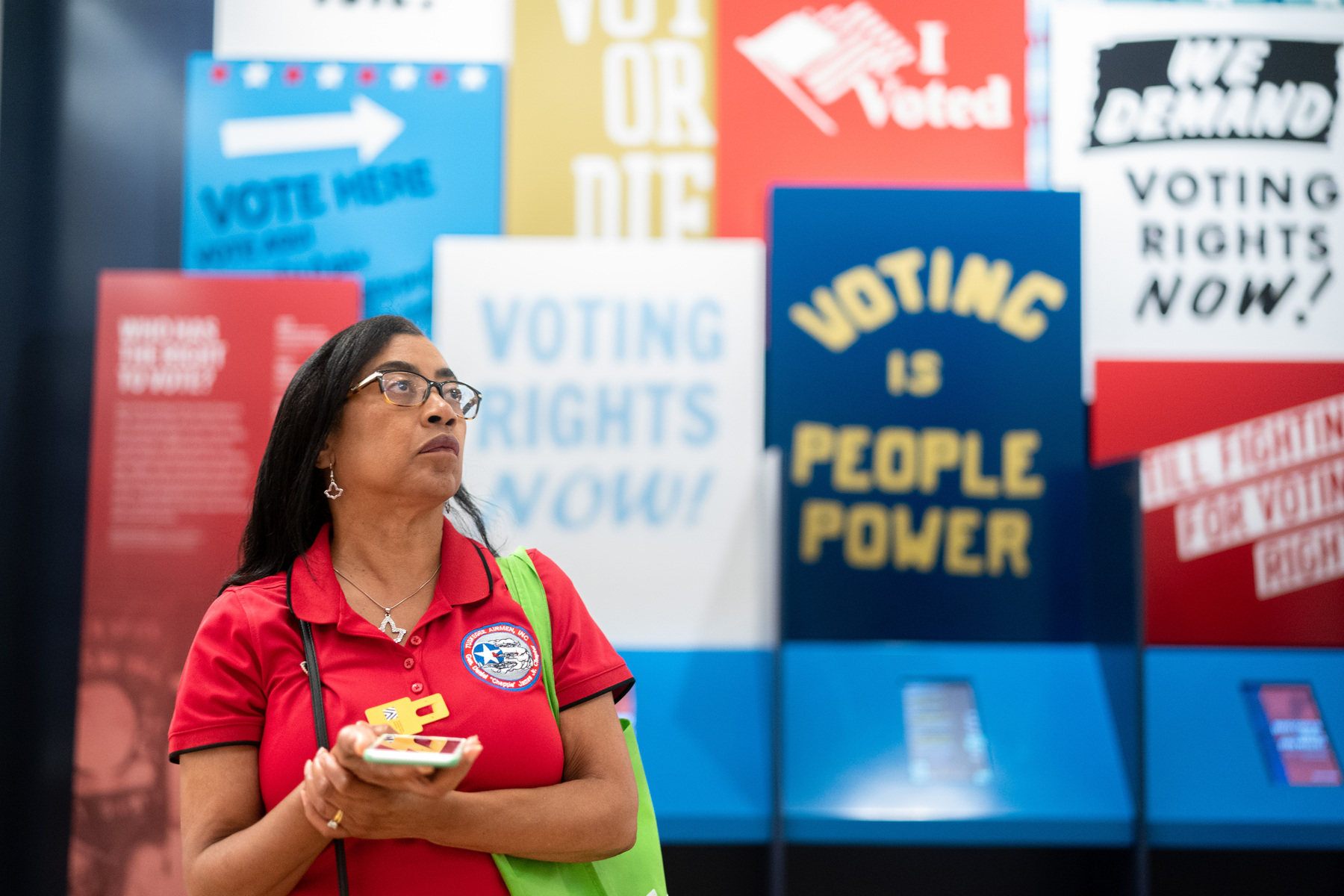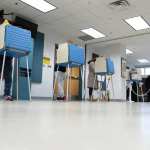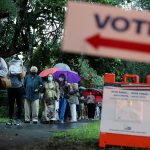We’re answering the “how” and “why” of justice and politics news. Sign up for our daily newsletter.
Two Supreme Court rulings on elections last month brought on a wave of cheers from voting organizers and democracy experts, who believe the cases will uphold key democratic norms going into the 2024 presidential election — but they still worry about an ongoing erosion of access to the ballot box.
Legal experts had been closely observing the potential outcomes of the cases under a new and more conservative court: Allen v. Milligan – a case about the Voting Rights Act that was decided on June 8 – and Moore v. Harper, a case about a fringe theory on state legislatures’ power in running elections that was decided on June 27. A majority of the justices ultimately tossed out the challenge to the pivotal 1965 law that prohibits racial discrimination in voting and rejected the fringe theory.
“The right to vote and to have your vote counted — one person, one vote — is central for protecting the other rights that Americans care about, including gender equity, including LGBTQ rights,” said Eliza Sweren-Becker, counsel in the democracy program of the Brennan Center for Justice. “When people are less able to access their voting rights, that means they’re less able to protect the other things that they care about, to protect the other rights that they hold dear.”
Sindy Benavides, executive director of the Latino Victory Fund, called the back-to-back rulings “a moment of reflection” on the long fight toward a multi-racial democracy. She noted the historic impact of Reconstruction-era amendments that aimed to establish racial equality in the Constitution.
“I think of all the individuals that have fought for 150 years so that every eligible citizen who has that constitutional right to vote is able to vote regardless of their race,” she said. “For us, we were closely watching the SCOTUS decisions, because clearly they have an impact on elections. And for us, it was a deep sigh of relief.”
In its 6-3 ruling in Moore, the court rejected what’s known as the independent state legislature theory, an idea that state legislatures have the sole authority to create rules for federal elections, including determining congressional maps without state court oversight. If the Supreme Court had approved this theory, legal experts believe it would have raised fundamental questions about checks and balances in elections administration.
The ruling was in response to a North Carolina case in which the state’s supreme court struck down congressional redistricting maps drawn by Republicans that overwhelmingly favored the party.
Chavi Khanna Koneru, co-founder and executive director of North Carolina Asian Americans Together, a group that organizes the AAPI community, said the ruling doesn’t immediately change the voting landscape in North Carolina, where a Republican-led legislature has signaled plans to pass restrictive voting measures and a newly conservative state supreme court is expected to uphold partisan state and congressional maps.
Still, Koneru tried to strike an optimistic tone about the Moore ruling.
“It’s a great decision, and it makes us feel like there is some hope for democracy, but on the ground today for the municipal elections, it doesn’t change much for us,” she said.
The 5-4 Allen ruling upheld Section 2 of the Voting Rights Act that prohibits election practices that deny or abridge the right to vote based on race. It is linked to a case out of Alabama in which the legislature was accused of diluting the political power of Black residents by not drawing a second majority-Black congressional voting district.
Khadidah Stone is an Alabama resident and a plaintiff in the Allen case. She said she burst into tears when hearing about the ruling, which will effectively allow people to continue challenging voting maps in court that are racially discriminatory.
It is already having an effect in other pending cases around gerrymandered maps and could play a role in which party controls Congress.
“It does feel like a weight has been lifted,” Stone said. “There are things that are being done in this country that are making it look like we’re back in the times of the civil rights movement. You can’t pass water bottles while people are trying to vote. You can’t let people go vote early. There are questionable things like obvious voter suppression tactics that are happening across this country. So for these voting rights cases that have been coming out … it’s a beacon of hope.”
But organizers and experts say there is more work to do on the state and federal levels to ensure voters have equal access to the ballot box.
Some pointed to the 10-year anniversary of Shelby County v. Holder, which paved the way for conservative-leaning statehouses to introduce bills that restrict voting, as a sign of the uneven landscape for future ballot access.
For decades, a section of the Voting Rights Act required states with a history of racial discrimination to get approval from the federal government before changing their voting laws.
Justices on the high court ruled that the formula used to determine which states require preclearance was unconstitutional. Within days of the Shelby ruling, states that had previously been closely monitored if they attempted to pass potentially discriminatory voting policy did just that, including voter ID legislation.
At least 29 states have passed nearly 100 restrictive voting laws since the ruling, according to a recent report from the Brennan Center.
“‘Shelby County’ had a pretty profound effect on how people are able to exercise their right to vote,” said Valencia Richardson, legal counsel for the nonprofit Campaign Legal Center, and an organizer who addresses election compliance of the Voting Rights Act in the Deep South.
Richardson described a “whack-a-mole” of harmful voting laws without the previous preclearance process in place.
“The burden has totally been shifted from the government to the voter in a way that has really, really hampered voting rights enforcement, particularly at the local level,” she said.
Many believe that the onslaught of voting restrictions brought on by Shelby over the past decade has impacted how voters are able to weigh in on issues like abortion, the economy and gun violence — policy areas that have a disproportionate effect on women. June also marked the one-year anniversary of Dobbs v. Jackson Women’s Health Organization, a ruling that overturned the federal right to abortion.
“It’s just an accumulation of harm to voting rights and a sort of death-by-a-thousand-cuts approach to voting access, particularly for voters of color, that we have seen in many states across the country,” Sweren-Becker said. “So 10 years later, we face a very challenging environment for voters to overcome. And there is a need and an opportunity for Congress to step in and restore the Voting Rights Act, and mitigate the harms that state legislatures have undertaken over the last decade.”
Kendra Cotton, CEO of the New Georgia Project, a voting rights organization, said she is encouraged by the recent court rulings. But she is also mindful that people who are trying to restrict voting access will not stop. She feels frustration at the persistent efforts to disenfranchise communities of color.
“It just simply doesn’t have to be this way,” she said. “What we’re asking for is equity and fairness. And we recognize that may not manifest in outcome, but it should, at the very least, occur in the process.”








